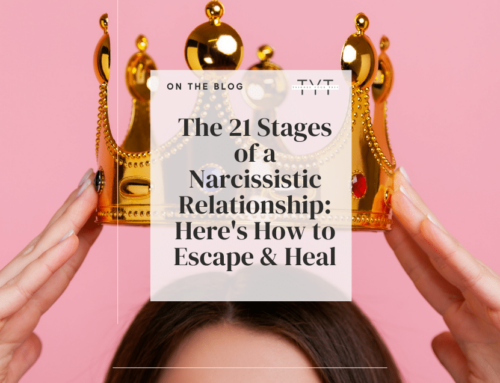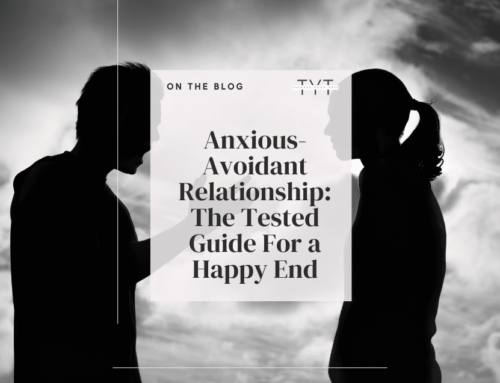Seeing someone crying can trigger empathy, compassion, and a desire for comfort in most of us. But when a narcissist sees you cry, the reaction might not be what you’d typically expect.
Mental professionals often label narcissists as self-centered, lacking empathy, and having a grandiose view of themselves. So, how does a person with narcissistic traits react to someone’s tears? Does it elicit sympathy, discomfort, or perhaps something entirely different?
In this article, we’ll explore these nuances, shedding light on the myriad ways narcissists might respond to the tears of someone they are involved with.
On top of exploring these various reactions, I will also explain what it means for you regarding the context of your relationship with the narcissist. By the end, we also explore the flip side and what it could mean when narcissists cry in front of you.
Here is the most important thing my therapist told me when I was in your position, looking for the narcissist’s reaction to my tears:
Underneath the obvious narcissistic personality is definitely shame and the paralyzing fear of being ordinary.
So, no matter their reaction, remember that they are fundamentally ashamed and afraid.
What is Narcissistic Personality Disorder?
Narcissistic Personality Disorder (NPD) is a mental condition characterized by a profound sense of self-importance, a strong need for excessive attention and admiration, and a lack of empathy for others. But beneath this mask of extreme confidence often lies a fragile self-esteem, susceptible to the slightest criticism.
This desire to always look after their own needs creates strained relationships for most narcissists.
NPD manifests in various traits, such as grandiosity, entitlement, manipulation, envy, arrogance, and a lack of empathy. Grandiosity refers to an inflated sense of self-importance and superiority, while entitlement is the belief that one deserves special treatment.
Manipulation is used to control others for personal gain, and envy arises from perceiving others as threats to their self-esteem or status. Arrogance is often exhibited through dismissive, disdainful, or patronizing attitudes.
Most of these narcissistic traits take route from childhood trauma. This trauma could come from the parents ignoring their child, exhibiting narcissistic traits themselves, or some other stressful past. Such events cause a change in human behavior, and there’s an obvious shift in the person’s emotions.
In the context of adult relationships, narcissists often form connections with others through a process known as “trauma bonding.”
A trauma bond occurs when the narcissist creates a cycle of abuse followed by intermittent reinforcement of rewards such as affection or validation. Often subjected to emotional highs and lows, the victim becomes emotionally dependent on the abuser, leading to a toxic bond (or even reactive abuse that can be challenging to break.)
Trauma bonds are very relevant to our topic as the most triggering reactions from narcissistic people to crying develop in such relationships.
Before exploring these negative reactions in emotional situations, let’s take a look at what a good narcissistic supply looks like and what sort of a person provides that.
What Type of Person Is Good Narcissistic Supply?
A good narcissistic supply for narcissists is often someone who is empathetic, compassionate, willing to give selflessly, and has low self-esteem. Such individuals can easily offer emotional support and feel other people’s emotions. This makes them more likely to tolerate narcissistic behaviors and provide the narcissist with the constant validation and attention they crave.
They are generous with their time, attention, and praise and often put the narcissist’s needs before their own. Narcissists enjoy such company as they do not feel threatened. This dynamic is beneficial for the narcissist as it reinforces their self-image.
In the context of our discussion about the reactions of narcissists to a crying person, these ‘suppliers’ often find themselves in emotionally draining situations. The narcissist reacts badly rather than providing comfort or understanding when their partner is upset.
Not all narcissists do so, but it’s not uncommon for them to further exploit these vulnerable moments to reinforce their power dynamic. Understanding this pattern is vital to identify and navigate relationships with narcissists and to avoid falling into the trap of mistaking such behaviors for normalcy.
Read more: Why Do I Attract Narcissists? 7 Main Reasons & How to Stop it
Is It Bad If a Narcissist Sees You Cry?
When a narcissist sees you cry, it’s far from the typical reaction of comfort and empathy that you would expect. Instead, your vulnerability may serve as an opportunity for them to further their own agenda.
They may offer false empathy and even fake crocodile tears. This doesn’t mean they don’t feel sad for you; however, navigating these visible emotions can offer insight into their self-centered world and make you believe they care for you.
To decide whether it’s actually bad if a narcissist sees you cry, I have devised two broad situations, as explained below.
Read more: Narcissist Hoovering: 8 Behavior Examples With Best Responses
Narcissist in a Romantic Relationship
In romantic relationships, revealing vulnerability by crying in front of a narcissist can have complex consequences. Narcissists may react in ways that reinforce their power dynamic, often using these moments to manipulate or belittle their partner.
They might perceive your tears as a sign of weakness or an attack against them (if it’s a huge argument). Since they do not like losing control, they would take the opportunity to reiterate their false sense of self-esteem.
For example, they may dismiss your emotions, ridicule you for your sensitivity, or even blame you for the issue at hand, all of which are attempts to undermine your self-esteem. This can create a cycle of emotional abuse where the crying person feels invalidated and unheard, leading to an even more toxic environment.
Thus, if you are dealing with “antagonistic narcissists” in such situations, it may actually be bad to cry in front of them.
Read more: Empath And Narcissist Bond: 6 Reasons Narcissists Want Empathy
Crying in front of a Narcissist in Other Relationships
A narcissist’s reaction to someone crying can be challenging in other relationships, such as friendships or familial bonds. Due to their pathological selfishness, narcissists may feel uncomfortable or annoyed by the display of emotion, as it diverts attention away from them.
Consequently, they might react with impatience, try to shut down the displayed emotion, or even use the situation to garner sympathy from others by playing the role of the ‘patient listener’ or ‘wronged party.’
If the narcissist is less hostile, they may revert to a false apology to defuse such a situation quickly. Narcissists revert to behaving poorly in such situations since they have difficulty dealing with emotions of sadness and annoyance of other people due to their lack of empathy.
However, it’s important to note that not all narcissists are alike. Some narcissists, particularly those who are self-aware and working on their traits, might genuinely attempt to console a crying friend.
Still, it’s crucial to understand how narcissists typically respond to better navigate your relationship with them and to take steps to protect your emotional health.
So, it may or may not always be bad for a narcissist to see you cry, but you must always prioritize your mental well-being and seek help from a licensed mental health professional if you feel trapped in a toxic relationship with a narcissist.
Do you have difficulty choosing a mental health professional? Can’t afford in-person couples or individual therapy?
This online therapy toolbox is more efficient and affordable than any other virtual therapy I’ve tried, including BetterHelp and Talkspace. It instantly matches you with a therapist and saves you hours of research for the right one (with unlimited daily messaging and support from your therapist). By leveraging the power of CBT (Cognitive Behavioral Therapy) -the most common psychotherapeutic approach for treating mental health problems- your therapist will guide you to a happier self through weekly sections, CBT worksheets, unlimited messaging, and daily worksheet replies. Bonus price for the fact that you can do your sessions wherever you are in the world and message your therapist anytime, daily.
How Narcissists Usually React When You Cry?
The reactions of narcissists when you cry depend on the type of narcissist they are. Generally speaking, a hostile or antagonistic narcissist might react in an aggressive way, while a grandiose or covert narcissist might be less likely to show such behavior.
Typically, these fourteen signs can show a narcissist’s true self in an emotionally charged situation:
They get angry
A common reaction for narcissistic people when they see someone else cry is getting angry. This can manifest in different ways, such as screaming, becoming defensive, or insulting another person. They would do anything to protect themselves from your emotional state and give you this negative attention as a deterrent.
Narcissists will try anything to avoid the emotions and feelings of the situation.
Read more: 5 Weird Things Covert Narcissists Do & Ways to Protect Yourself
False empathy
Narcissists may often express a false sense of empathy when they see you cry. This behavior is often based on attempting to gain sympathy or admiration from others to reaffirm their self-worth. It may also take the blame away from them (if it was their fault).
The sentiment might appear sincere, but it likely masks an underlying selfishness.
They feel uncomfortable
Narcissists also feel uncomfortable when others cry. It is possible that their own thoughts might be hidden beneath a mask of indifference or even contempt.
This could make them passive-aggressive to create distance or disrupt the current emotional atmosphere because narcissists tend to shut down emotions.
Read more: Can a Narcissist Change And Form a Healthy Bond?
They are trying to control your emotional distress
Narcissists may also seek to control the emotional distress of the crying person. They might use invalidating tactics such as blaming and projecting their emotions on you or trying to downplay your feelings. This is done for them to maintain a feeling of superiority by denying your vulnerability.
They would start by denying a genuine apology to protect their false self-esteem.
They don’t feel guilty
Narcissists may also not feel guilty after seeing someone else cry. They rarely have a conscience or any sense of morality.
They would likely deny feeling responsible for the other person’s hurt feelings, as it goes against their own agenda and view of themselves.
It’s not like narcissists derive pleasure from it; it’s just that they lack empathy and, thus, can’t feel the emotions of others.
They are trying to protect their own ego
Narcissists may also react to someone else’s crying by attempting to protect their own ego. They may try to do so by manipulating the situation, invalidating your opinion, or even trying to escape from the conversation altogether.
These behaviors aim to avoid confrontation of anything that might damage their self-image.
They offer a fake apology
Fake apologies are typical manipulation techniques. The narcissist attempts a fake apology to defuse and escape the situation. This might come from the fact that narcissists don’t like confrontation and are usually looking for ways to end any argument as soon as possible.
The narcissist likes control, and this would allow them to regain it quickly.
Read more: 35 Best Karma Narcissist Quotes That Will Shake Your World
Criticizing and judging
A narcissist might react to someone else crying by criticizing and judging them. The criticism could be anything from ‘it’s stupid that you’re so emotional’ or ‘there’s no need to cry about this,’ all of which is invalidating and damaging.
Diminishing your reaction
This is another typical way for a narcissist to shut down your feelings. The narcissist will attempt to diminish the other person’s reaction to regain a sense of control, which might come from their own feelings of inferiority.
You might hear them say, “It’s not such a big deal to cry for,” or “It could be worse, no reason to reach like that,” trying to make the other person feel small or wrong for their emotional display.
Gaslighting
Gaslighting is a manipulation tactic narcissists often use when they see someone else cry. It involves the narcissist attempting to manipulate the other person’s perception by making them doubt their own reality.
They might make facts up, alter the situation, and even convince others of their lies. It all comes down to persuading the victim that their crying reaction is false because they have perceived the facts wrongly.
Read more: Am I Being Gaslighted Quiz: The Best Free Quiz To Find Out
Silent treatment
Narcissists might also react to someone else’s crying by giving them the silent treatment. It usually happens because they don’t want to confront their emotions and instead prefer to ignore what has happened completely.
They act compassionate yet are excited
On rare occasions, some narcissistic people may act compassionate and understanding when they see someone else cry.
However, this reaction is often rooted in excitement or pleasure because the narcissist feels superior by reassuring the other person and having them depend on them for emotional security.
Read more: The Narcissist Prayer: How To Dive Into the Narcissistic Soul
They mock you
Your narcissistic partner might mock or laugh at the other person’s reaction as a way to distance themselves from the situation. This mocking could come from their true self and their need to be in control.
They shift the blame to you
Another common reaction from a narcissist, when they see someone else cry, is to shift the blame to them. It could come as blaming others for being too sensitive, overreacting, or holding them responsible for “creating that emotional mess.”
This tactic allows the narcissist to avoid responsibility and maintain their sense of superiority over the situation.
Why Is It a Trap When a Narcissist Sees You Cry?
When a narcissist sees you cry, it’s often seen as a trap because their reactions often lead to increased confusion and feelings of helplessness.
They utilize your vulnerable state to reinforce their own sense of control, effectively manipulating the scenario to their advantage. You might find yourself second-guessing your emotions, questioning your reality, or even feeling responsible for whatever caused your tears.
Their insincere empathy, coupled with blame-shifting and gaslighting, creates an emotional maze, leaving you feeling lost, doubtful, and reliant on them for emotional validation – an intricately woven trap to keep you within their realm of control.
Read more: Therapy for Narcissistic Abuse: The 5 Best Affordable Alternatives
What Does it Mean When a Narcissist Cries in Front Of You?
It is crucial to be aware of narcissistic behavior; however, do not necessarily categorize a narcissist’s crying as a manipulation tactic since they may actually be opening up to you. The starting quote of this article (according to my therapist) was: Underneath the obvious narcissistic personality is definitely shame and the paralyzing fear of being ordinary.
Their tears must mean they are just ashamed and afraid. It could also be a great initiative to invite them to therapy.
It can also be true that it could be for sympathy when a vulnerable narcissist cries in front of you. They use their apparent vulnerability to draw attention and create an environment where they are the focus. This behavior can be particularly damaging for people around them, as they may feel obliged to continuously support and reassure the narcissist, leading to emotional exhaustion.
The perpetual victimhood displayed by vulnerable narcissists can be a source of confusion and guilt for others. It becomes difficult to confront or criticize them as they often respond with emotional distress or claims of being misunderstood. Such behavior can create a one-sided relationship, where the narcissist’s needs take precedence, leaving little room for mutual respect and emotional reciprocity.
Read more: 9 Glaring Signs a Narcissist Is Done With You (& How to Heal)
Conclusion
In conclusion, navigating the emotional terrain with a narcissist can be incredibly challenging. It is important to recognize their manipulative tactics, such as using tears as a means to divert attention and assert dominance.
Remember, you are not to blame for their behavior. Establish boundaries and seek support from trusted individuals to safeguard your emotional well-being.
I hope you found this article a valuable resource, guiding you on how to proceed when a narcissist sees you cry and empowering you to demand respect from the entire situation.






